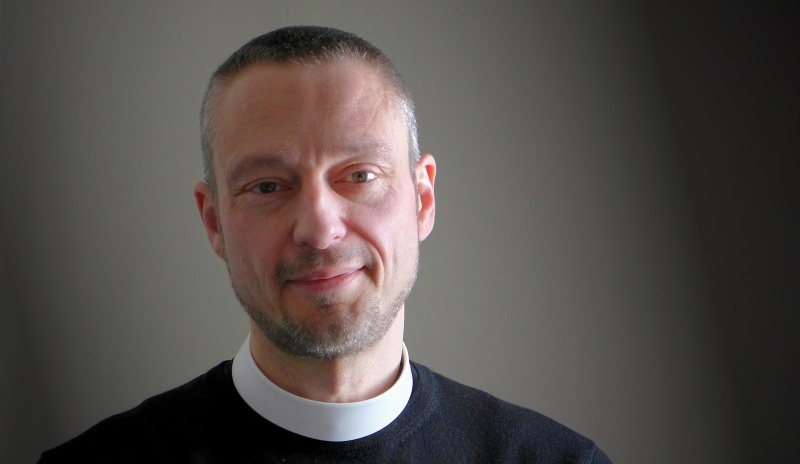On September 6, the archbishop of Canterbury, Justin Welby, was reported as saying that Britain’s economic model is “broken.” He was commenting on an interim report published by the Commission on Economic Justice, which was formed in 2016 by the Institute for Public Policy Research (IPPR). Archbishop Welby serves as a member of this commission, alongside business and union leaders.
The commission’s report points to deep and longstanding weaknesses in the UK's economy. Headlines include the claims that “young people today are poorer than previous generations at the same age,” and that gains from economic growth are being distributed “unequally,” favouring corporations and the richest in society rather than raising workers’ average pay.
Archbishop Welby is well-qualified to serve on this commission. Before ordination he worked in the City of London, and his ministry has involved bringing about entrepreneurial change, both locally and more recently for the Church of England as a whole. His book Dethroning Mammon, written for this Lent, tackles the subjects of money and materialism head-on. In it, he engages knowledgeably with the workings of a modern market economy, while arguing strongly that God must be in control of human lives, not mammon.
The IPPR’s commission will publish detailed policy recommendations in late 2018, but this interim report has led Archbishop Welby to call for “fundamental reform” on the scale of the 1940s and 1980s. These two dates are significant in UK history. The 1940s saw the birth of the welfare state under a strongly socialist government, while the 1980s saw a revival of entrepreneurial language and practice under Margaret Thatcher. Referring back to both conveys a sense of even-handedness but raises interesting questions.
"The greatest expansion of riches, and reduction in poverty, famine and general want, has been under the marker economies of the post-Second World War era."
For example, we might ask: which of the 1940s or the 1980s are more important for Archbishop Welby? To put it another way, is he really a socialist or a free market entrepreneur? I believe on balance the evidence points to the latter. His own leadership style embraces risk-taking and, in Dethroning Mammon, he takes care to expose the failings of a communist or socialist system. Looking back through history at such societies, he argues: “All of them demonstrate that efforts to impose equality always fail.” In support of free markets, he then goes on to observe: “The greatest expansion of riches, and reduction in poverty, famine and general want, has been under the marker economies of the post-Second World War era.” (See pages 132-133.)
Why, then, does he mention the 1940s? I believe the answer lies in his strong desire to see everyone able to participate fully in the economy and in society. The archbishop writes of an economy rooted in the abundant generosity of God, but notes how individuals can sometimes be excluded from this, because of injustices. (See pages 109-110.) My sense is that for Archbishop Welby, what was important about the 1940s was the sense that society was moving away from structural barriers in society.
For the archbishop, therefore, I believe it is because he recognizes the power of the market economy and the entrepreneurial spirit that he has felt the need to speak up at this time. His outspoken remarks remind us that the free market can fail because of powerful vested interests, resulting in sections of society being in effect excluded from its benefits. Economic justice can and should coexist with enterprise.
This stance taken by the archbishop is reflected nicely in one of the comments made within the commission’s report, when it argues that a socialist-style redistribution is “a measure of failure … The more it is needed, the more unfair the economy is in the first place.” Here we have in concise form the rationale for a well-established and fair market economy, which opens up entrepreneurial possibilities for all its participants rather than favouring the powerful few.
The IPPR commission’s policy recommendations next year for the UK economy may or may not prove to be useful. However, Archbishop Welby does well to serve on that body, as a reminder to wider society that Christians are deeply involved in working for an economy that helps human beings flourish. More specifically, I believe the archbishop has encouraged implicitly all those Christian thinkers who are seeking to explain how their faith informs and supports the entrepreneurial vocation.
As someone who aspires to be one of those thinkers, I value Archbishop Welby’s reminder that an enterprise economy cannot ultimately depend solely upon human ingenuity or willpower. For human lives to flourish through enterprise, there needs also to be a recognition of God’s gracious and abundant generosity and a God-given desire to embrace the possibility of participating in that abundance.
Aspects of our economies today are indeed in danger of being “broken,” because mammon is in danger of dethroning God, as has ever been the case. The task of explaining the solid theological basis for free enterprise has never been more important. My own assessment is that Archbishop Justin Welby is well-equipped to make such a case, and that his contributions will be both valuable and timely. The world, especially the world’s poor and excluded, sorely needs him to make such a case.
(Photo credit: UK Foreign & Commonwealth Office. This photo has been cropped. CC BY 2.0.)




